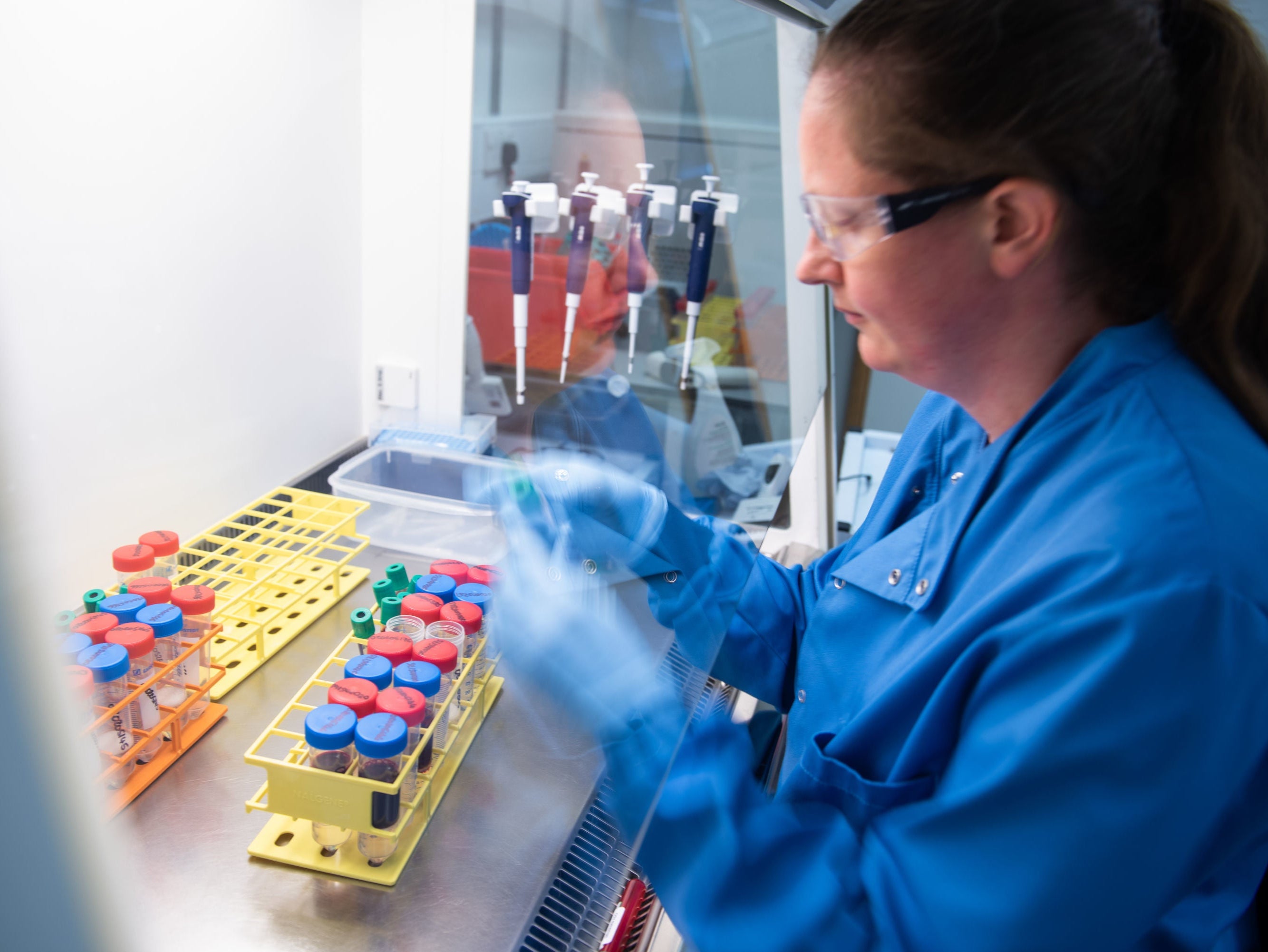Clinical trials begin in Oxford for new Ebola vaccine based on Covid jab technology
New jab targets two species of virus responsible for nearly all known outbreaks and deaths

The University of Oxford has launched clinical trials of a new Ebola vaccine based on the same technology as its jab for Covid-19.
Of the four Ebola virus species known to case disease in humans, there are two – the Zaire and Sudan species – which have been responsible for nearly all outbreaks and deaths worldwide.
The Zaire species is the most lethal of the two, and has caused most outbreaks, including the 2014-2016 West Africa outbreak and the 2018 outbreak in eastern Democratic Republic of the Congo (DRC), where more than 32,000 people were infected, and more than 13,600 died.
While there are already existing Ebola vaccines, Oxford scientists hope the new jab – which targets both the Zaire and Sudan species – will have a wider reach.
The university is now recruiting volunteers for Phase 1 trials, with the first vaccinations set to take place on Thursday.
“Sporadic Ebolavirus outbreaks still occur in affected countries, putting the lives of individuals – especially frontline health workers – at risk. We need more vaccines to tackle this devastating disease,” said Teresa Lambe, lead scientific investigator at the University of Oxford.
In the new study, 26 participants aged 18 to 55 will receive one dose of the vaccine. They will be monitored over a six-month period, with results expected in the second quarter of 2022.
The vaccine is based on the ChAdOx1 virus, short for “Chimpanzee Adenovirus Oxford One” – a weakened version of a common cold virus genetically modified to make it impossible for it to replicate in humans, which can be further tweaked to train the immune system to attack any chosen virus.
Known as viral vectors, such technology has been researched for decades, with two new vaccines using adenoviruses developed and used during the Ebola outbreaks in West Africa and the DRC.
Created as scientists sought a plan for how to best combat the threat of as-yet-unknown pathogens in the wake of the devastating Ebola outbreak in 2014, the university’s ChAdOx1 platform has now been used to create vaccine candidates aimed at tackling a range of existing infectious diseases, including flu, chikungunya, Zika, Mers – and now, famously, Covid-19.
Oxford’s technology, which uses an adenovirus found in chimpanzees to ensure humans have no prior immunity, proved key in enabling the scientists to create their coronavirus vaccine so soon after the virus emerged. According to the New York Times, their jab is now being used in 181 countries.
“Recent advances have led to the approval of vaccines against one of the viruses that causes Ebola virus disease,” said Dr Daniel Jenkin, principal investigator of the trial at the university’s Jenner Institute.
“However, this disease can be caused by several different species of virus and each of these may require a targeted immune response to offer protection.
“We have designed our new vaccine to target the two species of virus that have caused nearly all Ebolavirus outbreaks and deaths, and now look forward to testing this in Phase I clinical trials.”
A further trial for the vaccine is due to start in Tanzania by the end of the year.
Additional reporting by PA
Join our commenting forum
Join thought-provoking conversations, follow other Independent readers and see their replies
Comments
Bookmark popover
Removed from bookmarks